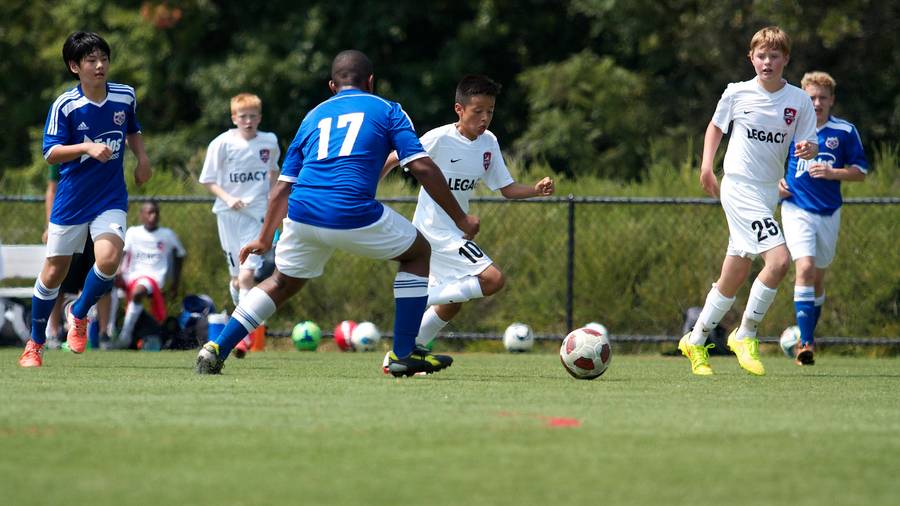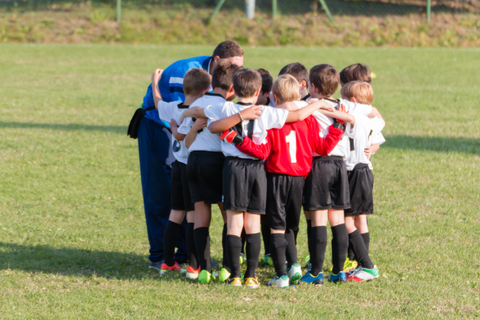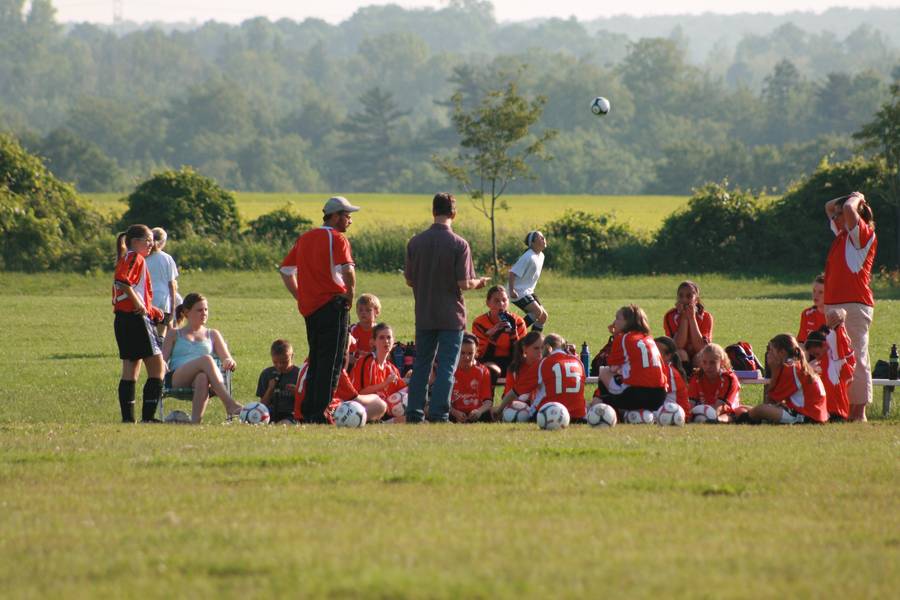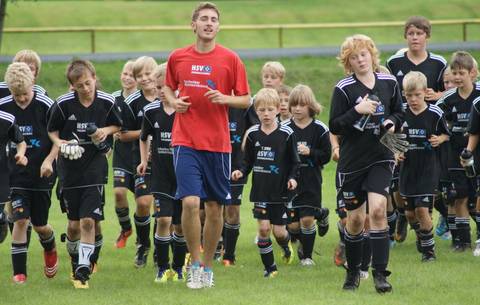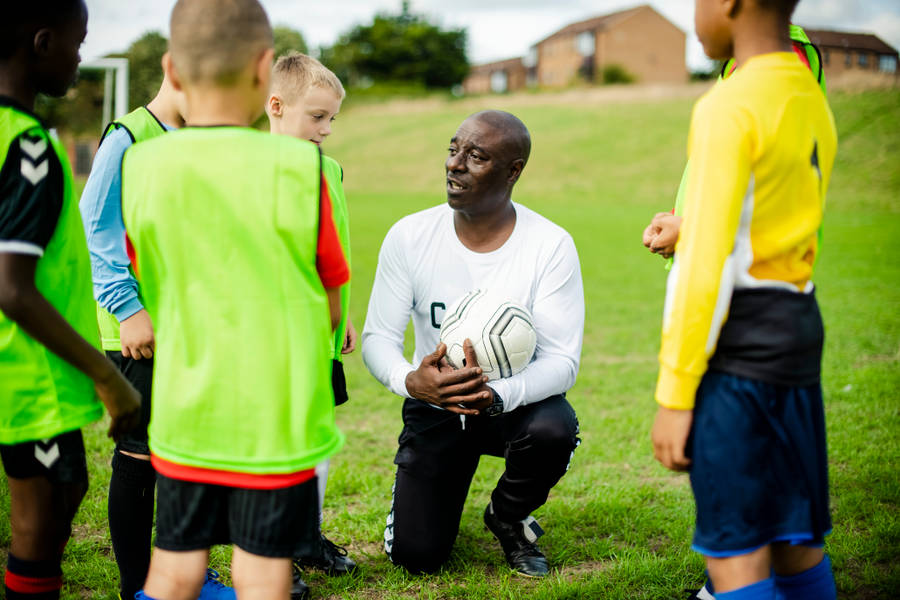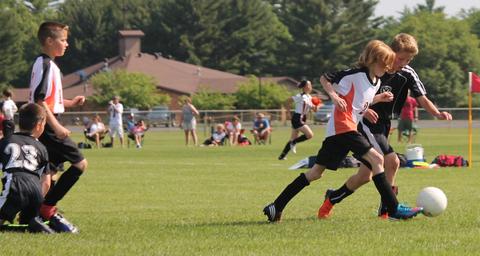
We’re approaching the end of the season and already thinking about next, however, within the squad of the under 16 team I look after there is the small matter of GCSE exams to focus on first.
Chatting to other teams throughout the season it appears that a number of them have no plans to continue to older age groups as so many players are not going to play football anymore after their exams. It seems to be a sad fact that, for many, the end of school is a natural ‘jumping off’ point with football too with many lost to the game forever.
Maybe after years of dreaming of ‘making it’ the realisation that this isn’t going to happen for them means they lose interest and motivation to keep training and playing. Perhaps they want to devote their time to other things, some healthy, some not so as they become young adults, but to me it’s a shame that so many teenage players leave the game.
As coaches, we’ve seen younger children often play football with enthusiasm and excitement, while maintaining that same level of engagement as they reach adolescence can present a significant challenge. Various factors contribute to this decline in participation, ranging from increased academic pressures and changing social interests to the physical and emotional challenges associated with teenage years. Understanding these factors and finding effective ways to keep young players involved can help the long term health of grassroots football.
One of the primary reasons teenagers step away from football is the growing pressure of school commitments. As academic workloads increase and exams become more pressing, many young players struggle to balance their studies with the time demands of training and matches. Some may feel overwhelmed and opt to prioritise their education, believing that football is incompatible with their academic ambitions. Some clubs acknowledge this reality and offer flexible training schedules that allow players to continue their development without feeling as though they are compromising their future prospects. Understanding that not every session needs to be mandatory and offering optional training times can help teenagers maintain their connection to the game.
Social influences also play a significant role in a teenager’s decision to stay in or leave football.
During adolescence, peer groups become increasingly important and external pressures can sometimes lead players to drift away from the sport. Some may fear judgement from friends who do not play football, while others may find that their social circles pull them in different directions.
Clubs that offer a welcoming, inclusive and supportive environment can counteract these external pressures by making football a social and enjoyable experience. Encouraging team bonding through off pitch activities, social events and a culture of camaraderie can strengthen a teenager’s sense of belonging within the team, making it less likely that they will step away from the game.
Another challenge is the physical and emotional transition that teenagers undergo. The rapid changes in their bodies can affect their confidence and performance on the pitch. Players who once thrived may struggle with growth spurts that temporarily disrupt their coordination or lead to increased injury risks. These physical challenges can be frustrating and if not properly managed, they may lead to disillusionment. Coaches who take a supportive and understanding approach to these changes can help players navigate this difficult period. Providing supportive feedback, encouraging patience and ensuring that training sessions are tailored to accommodate different stages of development can make a difference in keeping teenagers engaged.
The competitive nature of football can also become a barrier for some teenagers. As they progress through the age groups, the game often becomes more results focussed and players who may not be on a pathway to elite football can feel sidelined or undervalued. While competition is an essential part of the sport, it should never come at the expense of participation at grassroots level. Instead, grassroots football must prioritise enjoyment and development alongside winning. Offering different levels of competition within clubs, from highly competitive teams to more relaxed, social football opportunities ensures that players can continue at a level that suits their ambitions and abilities.
Giving teenagers a say in their football experience and allowing them to choose the level of commitment they are comfortable with can help keep them in the game for longer.
Role models and inspiration also play an important role in keeping teenage players engaged. Seeing older players, coaches, or even professional footballers who have faced similar challenges and persevered can be a source of motivation.
Mental health awareness is becoming an increasingly significant factor in teenage participation in sport. The pressures faced by young people today, both online and offline, can lead to anxiety, self doubt and a lack of confidence. Football should be a positive outlet that supports mental wellbeing rather than adds to stress levels. Creating an environment where players feel comfortable discussing their concerns, maybe even providing access to mental health support and promoting the idea that football is a space for enjoyment rather than pressure can help sustain long term engagement.
Coaches who prioritise emotional wellbeing alongside physical performance create teams where players feel supported both on and off the pitch.
Emphasising fun and variety in training sessions is another way to maintain engagement. Repetitive drills and overly structured sessions can sometimes become monotonous for teenagers who crave excitement and challenge. Incorporating small sided games, creative drills and match scenarios that encourage problem solving and tactical thinking can keep training fresh and enjoyable. Letting players contribute ideas to sessions and occasionally introducing alternative football formats can add variety and keep players motivated.
Ultimately, keeping teenage players engaged in football requires different approaches that considers their changing needs, aspirations and challenges. Clubs and coaches who are adaptable, willing to listen and are proactive in creating an environment that prioritises enjoyment, inclusivity and personal development tend to retain more teenagers. When they feel that football is a positive and rewarding part of their lives, one that accommodates their evolving commitments, social circles and personal growth they are far more likely to remain in the game and continue their journey in grassroots football, even when their dreams of becoming professional seem to be dashed.

